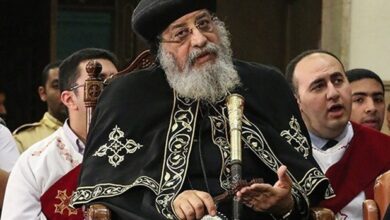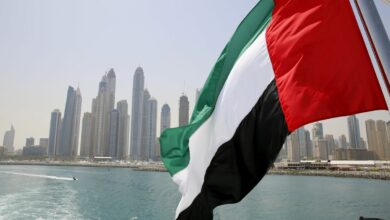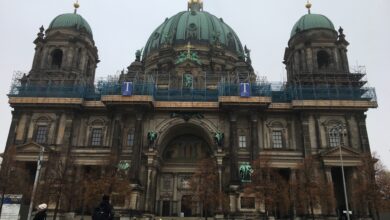Copts in the Upper Egyptian province of Aswan have ended their sit-in in front of the governorate’s building in protest against what they call the demolition of a church in Marinab village in Edfu.
Eyewitnesses said that the protestors agreed to end their protest after negotiating with security officials in the province. The protesters feared additional clashes with Muslims, especially after Salafi groups announced that they will organize a march against the Coptic sit-in.
An angry Muslim mob last week attacked on 30 September the church alleging that the building did not have official authorization to be used as a Christian place of worship.
The widely criticized governor of Aswan, Mostafa al-Sayyed, was quoted as supporting the claims that the church was illegal but condemned the attack on the building and ordered an investigation into the incident.
The Coptic protesters demanded removal of the governor and the rebuilding of the church.
The protesters accuse police officers in Aswan of colluding with those who demolished the building. Eyewitnesses said they saw several police officers passively observing as the building was torn down.
Meanwhile, the Coalition of Arab Tribes in Aswan decided to cancel a march planned in response to the sit-in staged by Copts, in order to avoid fueling sectarian strife.
Khaled Ibrahim al-Quossy, representative of Jama’a al-Islamiya in Aswan, threatened a severe response if the ruling Supreme Council of the Armed Forces removed Aswan’s governor. He said his position does not indicate support for the governor but is rather intended to highlight the fact that individual groups should not be making sovereign decisions.
Ismail Ahmed, leader of Jama’a al-Islamiya in Edfu, said the building in question was bought by a priest who obtained a license to construct a new building. When it became apparent that a dome was being constructed on top of the building, Muslims voiced their opposition to the project.
Tensions between Christians, who account for 10 percent of Egypt's 80 million people, and Muslims have increased since the February uprising that ousted President Hosni Mubarak.
In a fact-finding report, the Egyptian Initiative for Personal Rights, a rights organization, said it has obtained copies of documents and licenses that demonstrate the construction of the church is legal and officials are aware of it.
“What is saddening is not only the assaults on the homes, property of Copts, their places of worship and the failure of the state to protect them, but rather the fact that we have seen these very same events unfold with the same sequence and details before,” the report said. “These crimes will keep on repeating as long as authorities continue to handle this dossier the same way.”




